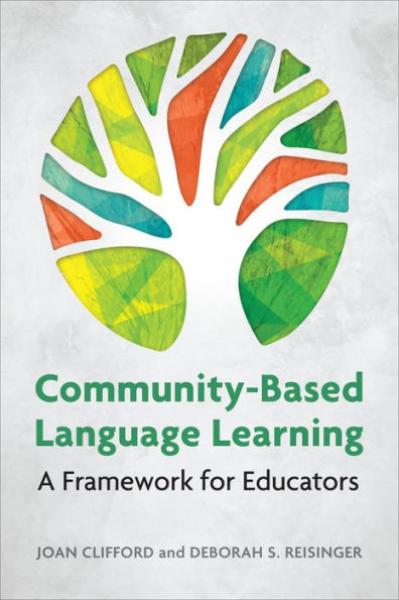Description
Community-Based Language Learning offers the first manual for world language educators interested in community-based learning (CBL). CBL includes pedagogical approaches that connect academic learning objectives with experiential learning, ranging from reciprocal partnerships with the community (e.g., community engagement, service-learning) to one-directional learning situations (e.g., community service, site visits, etc.). Despite this method's wide use, there is a lack of pedagogical resources in CBL for language educators.
This handbook prepares teachers for community-based language learning (CBLL) by offering solid theoretical frameworks and well-designed, engaging exercises that help students build authentic relationships as they engage with world language communities in the US. Case studies based on interviews with community members and students provide real-world examples that foster thoughtful reflection. Activities in each chapter explore modes of written and oral communication that foster second language development. The authors have extensive experience in this area and bring their knowledge to this project.
Community-based Language Learning offers the first manual for world language educators interested in community-based learning (CBL). CBL includes pedagogical approaches that connect academic learning objectives with experiential learning, ranging from reciprocal partnerships with the community (e.g., community engagement, service-learning) to one-directional learning situations (e.g., community service, site visits, etc.).
A timely and must-have publication for second language teachers drawn to the CBLL endeavor. Kudos to the authors for providing up-to-date perspectives on effective principles of quality community engagement. Together with their own experiences on practices and solutions to working with communities, this book makes a passionate case for connecting L2 classrooms with communities.
--Josef Hellebrandt, Associate Professor, Santa Clara UniversityClifford and Reisinger's book is a must-have resource for 21st century educators. It provides important insights from current academic research as well as discussion prompts and checklists for the successful implementation of community-based activities in your classroom.
--Carmen King de Ramírez, Ph.D., Assistant Professor of Spanish, University of ArizonaGrounded in rigorous and comprehensive research, his book flows perfectly well from one topic to the next, and could be covered in one semester, if used as a textbook. Clifford and Reisinger have nailed down the fundamental six topics in the area, providing a solid theoretical framework for CBLL. Assessment is the most difficult part of designing strong, meaningful and sustainable Community Based Learning courses, and this book presents excellent models, including the most recent assessment tools, such as IPAs and the three modes of communication. This is a must have for 21st Century language educators and libraries in higher education.
--Lourdes Sánchez-López, Ph.D, Professor of Spanish, University of Alabama at BirminghamThe multi-faceted process of acquiring language proficiency and cultural competence is one of the most urgent and valuable steps students can take to become successful professionals and responsive world citizens. Community-based Language Learning: A Framework for Educators provides a compelling philosophy and outstanding tools for developing programs in which students simultaneously acquire language proficiency and social justice consciousness through engagement with local communities. Original and timely, the volume maps out a path for meeting 21st century educational and civic needs.
--Mary K. Long, Director, Spanish for the Professions, University of Colorado, Boulder
Product Details
- Georgetown University Pre Brand
- Oct 2, 2018 Pub Date:
- 1626166366 ISBN-10:
- 9781626166363 ISBN-13:
- 207 Pages
- 8.9 in * 5.9 in * 0.6 in Dimensions:
- 1 lb Weight:




